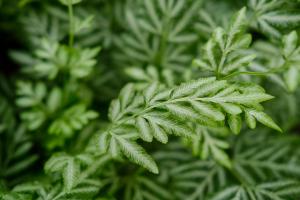Introduction
Water plants and animals are an essential part of aquatic ecosystems. They serve as food sources for a variety of animals, including fish, birds, and mammals. In this article, we will explore some of the animals that rely on water plants and animals for sustenance.
Fish
Fish are perhaps the most well-known animals that eat water plants and animals. Many species of fish, including carp, catfish, and tilapia, feed on aquatic vegetation. They also prey on other animals, such as crustaceans, mollusks, and smaller fish. Fish are an important part of aquatic food webs, and they play a crucial role in regulating populations of other aquatic animals.
Birds
Many species of birds rely on water plants and animals for food. For example, ducks, geese, and swans eat aquatic plants, while herons, egrets, and kingfishers prey on fish, frogs, and other small animals. Waterfowl are particularly important for their role in dispersing seeds of water plants, helping to maintain healthy populations of aquatic vegetation.
Reptiles
Several species of reptiles are known to feed on water plants and animals. Turtles, for example, are known to eat aquatic plants, insects, and small fish. Alligators and crocodiles also feed on a variety of aquatic animals, including fish and turtles. These predators play an important role in maintaining healthy populations of other aquatic animals, as they can help control the spread of invasive species.
Mammals
Several species of mammals are known to feed on water plants and animals. Beavers, for example, eat aquatic plants and construct dams that create habitats for a variety of aquatic animals. Otters feed on fish, crayfish, and other aquatic animals. Other mammals that rely on water plants and animals for food include raccoons, muskrats, and river otters.
Insects
Insects are another group of animals that rely on water plants and animals for sustenance. Mosquitoes and other aquatic insects feed on the nectar and pollen of aquatic plants, while dragonflies and damselflies prey on other insects and small aquatic animals. Insects play an important role in the food webs of aquatic ecosystems, and they are an important food source for many larger animals, such as fish and birds.
Conclusion
Water plants and animals are a vital part of aquatic ecosystems, serving as food sources for a diverse array of animals. Fish, birds, reptiles, mammals, and insects all rely on water plants and animals for sustenance, and they play important roles in maintaining healthy aquatic ecosystems. By understanding the relationships between these animals and their food sources, we can better appreciate the complexities of aquatic ecosystems and work towards their conservation and protection.

 how many times do yo...
how many times do yo... how many planted tre...
how many planted tre... how many pine trees ...
how many pine trees ... how many pecan trees...
how many pecan trees... how many plants comp...
how many plants comp... how many plants can ...
how many plants can ... how many plants and ...
how many plants and ... how many pepper plan...
how many pepper plan...
































